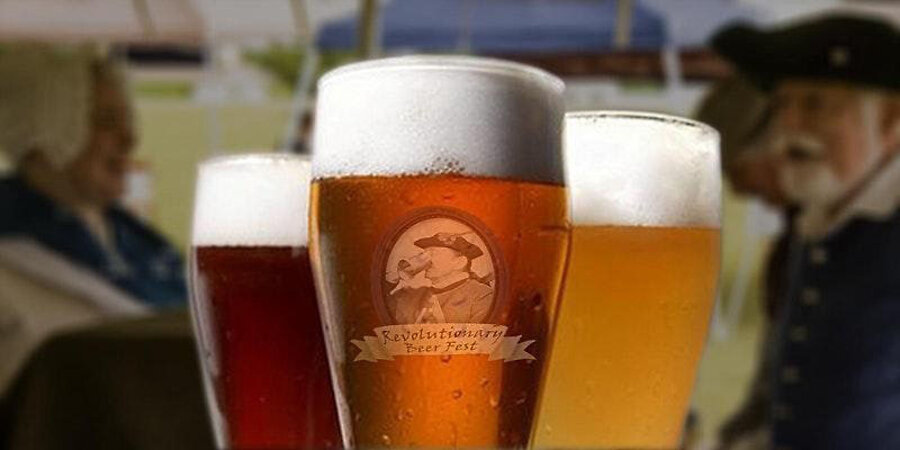 THE 7TH ANNUAL REVOLUTIONARY BEER FEST Evoking America's Colonial past when the tavern was a staple of social, economic, and political life by Rob Lauer To talk of taverns in Colonial America is to evoke images of rowdy Colonists in tri-corner hats raising pewter mugs of beer and ale while drunkenly singing 17th-century ditties. But such images are more fiction than fact. Besides offering food, drink, and lodging, early American taverns played a crucial role in the cultural, economic, and political lives of Colonial citizens. When the mail arrived, it was usually distributed at the local tavern. In rural areas without courthouses, trials were typically held in taverns. As early as 1656, taverns were considered so essential to civic life that even the Puritan-controlled General Court of Massachusetts imposed a fine on any town that did not have one. Taverns played their most important role in American history in the years leading up to the Revolutionary War. In taverns throughout the colonies, literate patriots drank and read newspapers aloud to their fellow revelers, stoking revolutionary fervor. Taverns were places where news from other colonies was shared, and new "enlightened" ideas from the likes of Thomas Paine and Thomas Jefferson were discussed. As anger against the British crown spread throughout the colonies, many took to the tavern to discuss, argue, and debate what should be done. The Green Dragon Tavern in Boston was known as the headquarters of the American Revolution because the Sons of Liberty met there and organized the Boston Tea Party. Paul Revere's Ride was sparked when those in the tavern overheard plans for the British invasion of Lexington and Concorde. The Tun Tavern in Philadelphia was the birthplace of the U.S. Marine Corps and American Freemasonry. George Mason, Thomas Jefferson, and others first spoke of America's independence from England in Williamsburg's Raleigh Tavern. Like most communities in Colonial America, the village of Great Bridge also had a tavern. An ad in a 1769 issue of "The Virginia Gazette" referred to an establishment called the Three Tun Tavern located in Great Bridge across the road from a billiard hall. In the years leading up to the American Revolution, the Three Tun Tavern served travelers and was a gathering place for Great Bridge residents. As Virginians became increasingly disenchanted with King George and the British Parliament, there can be little doubt that the Three Tun Tavern walls began echoing with revolutionary talk. The surest evidence of this is the historic Battle of Great Bridge--a conflict American historians have nicknamed "The Second Battle of Bunker Hill." Though this battle, fought on December 9, 1775, lasted less than an hour, the residents of Great Bridge and the surrounding countryside defeated the British troops, forcing the British evacuation of Virginia and igniting a string of events that ended with the signing of the Declaration of Independence seven months later. Though the Three Tun Tavern no longer stands, it has been brought back to life at the Great Bridge Battlefield Museum, where the tavern's interior, complete with a cage bar, tables, and a fireplace, has been recreated in one of the museum's galleries. "We believe the tavern existed close to where the museum is now, in the area called South Island, among warehouses where produce and supplies were stored for shipment to Norfolk," says Louis Scott Mosier, the historical interpreter who portrays Lewis Scott, the Three Tun Tavern's proprietor, during the museum's tavern-themed special events.  Before the American Revolution, Great Bridge was a merchant-class village where the residents were well-off enough to build several dozen homes comparable to those in Williamsburg and Norfolk. The community was even prosperous enough to support two taverns. "We know the Three Tun Tavern by name," Louis explains. âWe also know that Polly Miller, one of the residents of Great Bridge, also ran an ordinary â The Shopper 1545 Crossways Blvd. Chesapeake, VA 23320 757-317-5465 http://www.TheShopper.com |